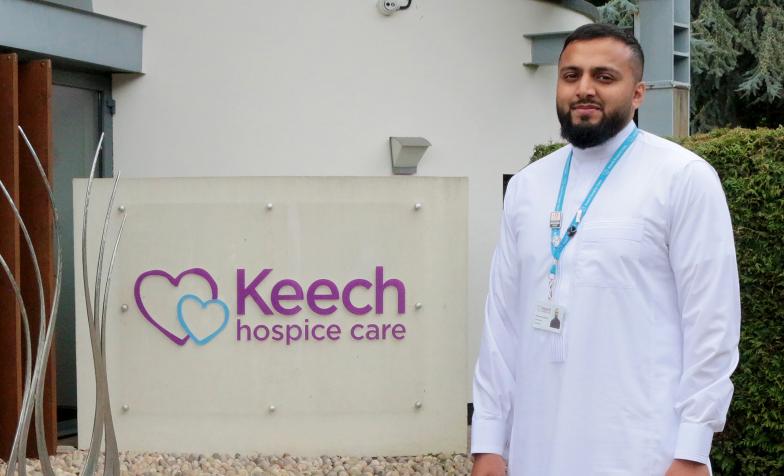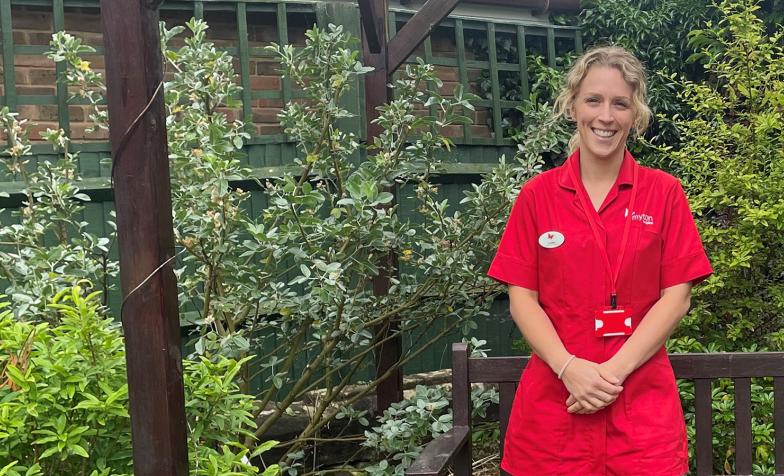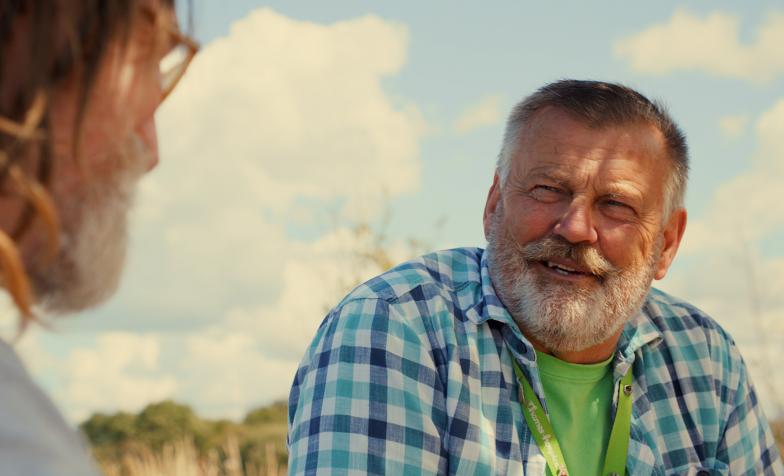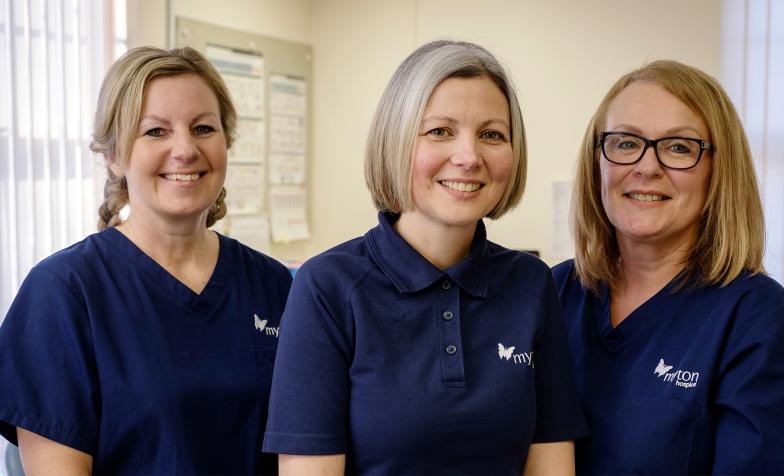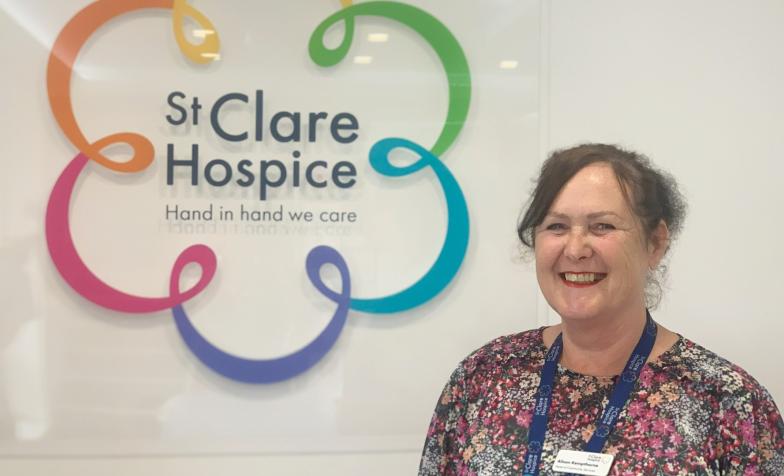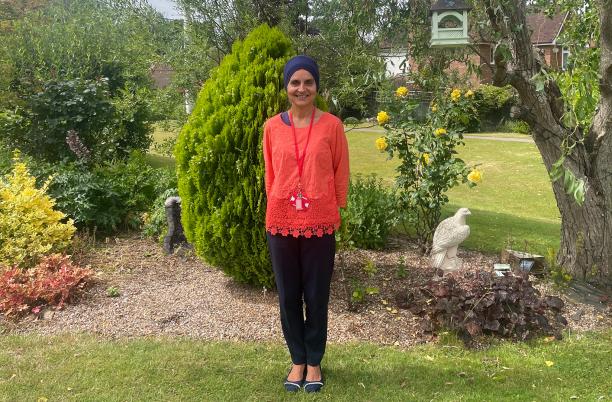

Hospice Care Week in 2023 celebrates the people helping to make hospice care in the UK what it is.
At The Myton Hospices in Warwick, Surjit is one of those amazing people. We find out why she volunteers in her local hospice after a rewarding career as a GP.
Surjit’s story: how it started
As a valued volunteer at Myton’s Inpatient Unit, Surjit helps offer Advance Care Planning to patients and their families. Advance Care Planning supports people to think ahead about what's most important to them as they approach end of life.
But it was only after taking early retirement in 2020 that she decided that she wanted to volunteer at a range of local organisations. Remembering a visit to her GP practice from The Myton Hospices’ Community Engagement Manager, Surjit got back in touch to find out more about volunteering with them.
After several conversations with Dr Sarah MacLaran, Medical Director at The Myton Hospices, they decided that Surjit’s skills would be best suited to the Inpatient Unit. On the unit, Surjit’s wealth of experience and knowledge would be extremely useful when talking to patients and their families about their Advance Care Planning preferences.
“I loved working as a GP”, says Surjit. “It was a relatively small practice so we were close to our patients. When the pandemic hit and all we could do were phone appointments and video calls, I really missed the personal face-to-face interaction with the patients. I did not feel fulfilled in what I was doing.
“Having the opportunity to volunteer at Myton was meant to be. Sarah was so passionate about creating this role for me and I was so grateful to be a part of it all.
Surjit says that Advance Care Planning is something that all patients deserve, yet don’t always have the luxury of. “It can be difficult for doctors and nurses to have time to put it in place so I am so glad patients at Myton have this opportunity.”
The role
Surjit says that her role involves having conversations with patients about what's important to them: what their priorities are and what they'd like from their last days. It’s a holistic approach, taking their medical conditions into account, alongside their personal needs and desires too.
“As every patient is different, the conversations I have vary. Everyone has different things that are important to them and need considering when they are at Myton and after discharge.
“Some do equate Advance Care Planning to end-of-life planning, which isn’t the case. We call it a gift to the family, as it allows everyone to be on the same page and have the mutual understanding of what the patient wants and needs.”
Myton Hospices’ Dr Sarah MacLaran believes that doctors and nurses can see advance care planning as time consuming and may struggle to prioritise this during their day-to-day work - which is why Surjit plays an extremely valuable role in the team:
“Having support from a dedicated clinically experienced volunteer with good communication skills helps the team ensure we prioritise advance care planning. Surjit meets patients and their families and helps to start and continue these ongoing conversations which is beneficial for the patients, their families and the clinical staff.”
You’ll find Surjit volunteering at Myton every Monday morning, talking to patients about their plans. She keeps very busy, also helping out at two hospitals and at her local temple.
“Making a great difference”
Surjit explains that loves what she does, her team at Myton – and the positive impact of helping people face-to-face: “I love the patient contact. I can spend as much time as is needed talking to them about their needs and desires. Even if they aren’t receptive to Advance Care Planning, just having a general conversation can make a great difference, especially when I first started during the pandemic and visitors were restricted.
“Patients and loved ones are often scared”, says Surjit, who understands how vulnerable and fragile they may be feeling. She adds: “they may just need to talk and feel they are being listened to. I feel very privileged that I can do that, especially given my many years of communicating with patients as a GP.
“It only works because of the whole team”
It’s clear that Surjit takes a great deal of comfort and enjoyment from working as part of the team at Myton. Hospices are well-known for their compassion, respect and supportive environment, and Myton is no different:
“Everyone I’ve spoken to has such kind words to say about the staff and volunteers at Myton. When they hear they are going to a hospice, often they think they are going there to die, but we do so much more than that. With a variety of services, supported by the whole multi-professional team, it’s reassuring to patients to know this isn’t just a place to die.
“Myton works as a team. The services provided allow the patient to be seen as a whole, not just their medical condition. From the nurses and doctors, to the physiotherapists and chaplaincy team, it only works because of the whole team.”
Thank you to Surjit and The Myton Hospices for sharing her story for Hospice Care Week.
About Hospice Care Week 2023
Hospice Care Week is a chance to celebrate hospice care nationwide, and the incredible work that is being done to make sure everyone can benefit from the very best end of life care. This year we're focusing on workforce, under the theme: ‘We are hospice care’.
Hospices support more than 300,000 people every year. But the need for hospice care is growing. There aren’t enough people to fill the roles we need to look after dying patients and their families. Without people to fill these empty roles, hospices will struggle to keep providing the gold-standard end-of-life care everyone deserves.
That’s why, this Hospice Care Week, we're celebrating everyone that makes hospice care what it is. Read more stories like Surjit's, below.

